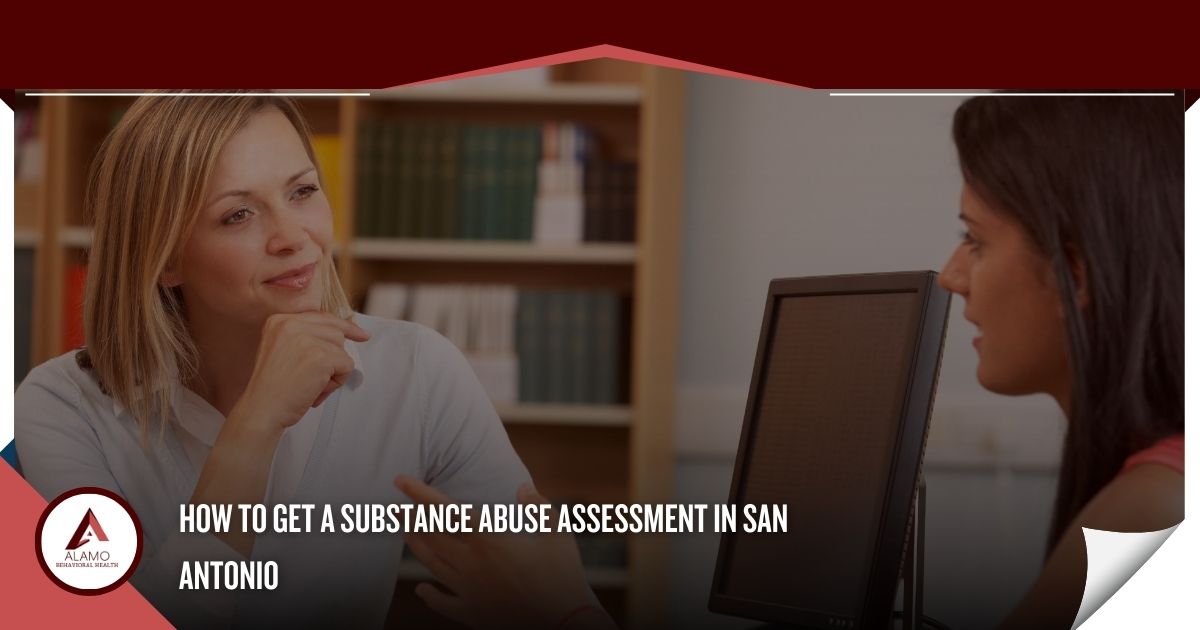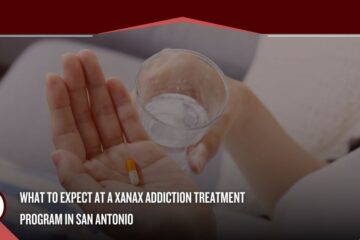Drug and alcohol abuse can keep you from living the life you choose. Instead of deciding the direction of your life, substance abuse is in the driver’s seat. Overcoming addiction can be very challenging, but getting comprehensive treatment and support can help you put substance abuse in the past.
No two people have the same needs or goals in addiction recovery. There are many types of treatment programs and levels of care available to meet a wide range of needs. Before beginning a treatment program, you will undergo a substance abuse evaluation to determine the right course of care.
This article will explore how to get a substance abuse assessment in San Antonio.
What you will learn:
- The goals of a substance use assessment
- What to expect during your evaluation
- How to recognize the signs of substance use disorder (SUD)
- Where to find an assessment, treatment, and support
If you or someone you love struggles with substance abuse or addiction, effective treatment is available at Alamo Behavioral Health. Contact our intake specialists to learn about our drug and alcohol addiction treatment programs or to schedule an evaluation.
What is a Substance Abuse Assessment?
A substance abuse evaluation is a screening tool that medical and addiction treatment specialists provide. These professionals use this type of assessment to understand your substance use and treatment needs.
People may undergo a court-ordered substance abuse evaluation after an arrest for driving under the influence or another legal matter. People may also choose to have an evaluation to access treatment or other recovery resources.
Medical and mental health professionals typically perform a substance abuse assessment at the beginning of treatment to determine which services and therapies would be most beneficial. They also use this information to recommend inpatient or outpatient rehab programs.
What are the Goals of a Substance Abuse Evaluation?
The general goal of a substance abuse evaluation is to assess your needs and create the most effective drug abuse treatment plan. Several parts of the assessment can give your treatment team more insight into the roots of your substance use and how to best help you overcome it.
A substance abuse evaluation typically involves:
- Identifying signs of physical and psychological dependence on drugs or alcohol
- Determining the length and severity of your substance use
- Identifying co-occurring mental health and medical conditions
- Verifying insurance details
- Recommending a level of care or treatment program
Participating in a substance abuse evaluation is critical. Without this information, your treatment team cannot provide tailored treatment to address your specific needs.
Throughout your treatment program, your team will re-assess your needs and adjust your plan as needed.
What to Expect During a Substance Abuse Assessment
Before you start a program in an addiction treatment facility, a medical professional or addiction specialist will conduct a substance abuse assessment. It is crucial to ensure the person conducting your evaluation specializes in providing addiction treatment. This will ensure the most thorough assessment and best outcomes.
Your substance abuse evaluation will consist of:
- Questions about your past and current substance use: what substances you use, how much, how often, the methods you used to ingest them, history of withdrawal symptoms, and more
- Your medical and mental health history, including medications you take, medical or addiction treatment history, known medical conditions, etc.
- An assessment of how ready you are to change and recover
- An evaluation of your risk for relapse
- Questions about your environment and how it can affect your recovery
- Verification of your insurance coverage to help you understand what services may be included in your plan
The information you provide in your assessment will help shape your treatment course. It is critical to be honest and open with your treatment team. Your honest answers will help them create the most effective treatment plan to meet your needs. Receiving tailored care can give you the best chance at a lifelong recovery from addiction.
Do I Need a Drug and Alcohol Evaluation?
Recognizing addiction can be challenging. It is important to look for signs of addiction and seek treatment as soon as you identify the need for help.
Some common signs of addiction include:
- Needing to use more of a substance to get the desired effects
- Having cravings for drugs or alcohol
- Wanting to stop or cut back on using drugs or alcohol but finding it difficult to quit
- Isolating yourself from others
- Doing dangerous things while using drugs or alcohol, such as having risky sex or driving
- Having financial, medical, or legal troubles related to your substance use
- Neglecting your relationships, work, hobbies, or responsibilities because of substance use
- Having withdrawal symptoms if you stop using drugs or drinking
Recognizing a problem is the first step toward getting help. Comprehensive treatment programs include medications, mental health care, support groups, counseling for family members, and other therapies that can support long-term recovery.
Take the first step of your recovery journey by scheduling a substance abuse evaluation as soon as you recognize the signs of addiction.
Find a Treatment Center
Contact the Alamo Behavioral Health specialists to schedule a substance abuse evaluation or explore our comprehensive treatment and support programs.







